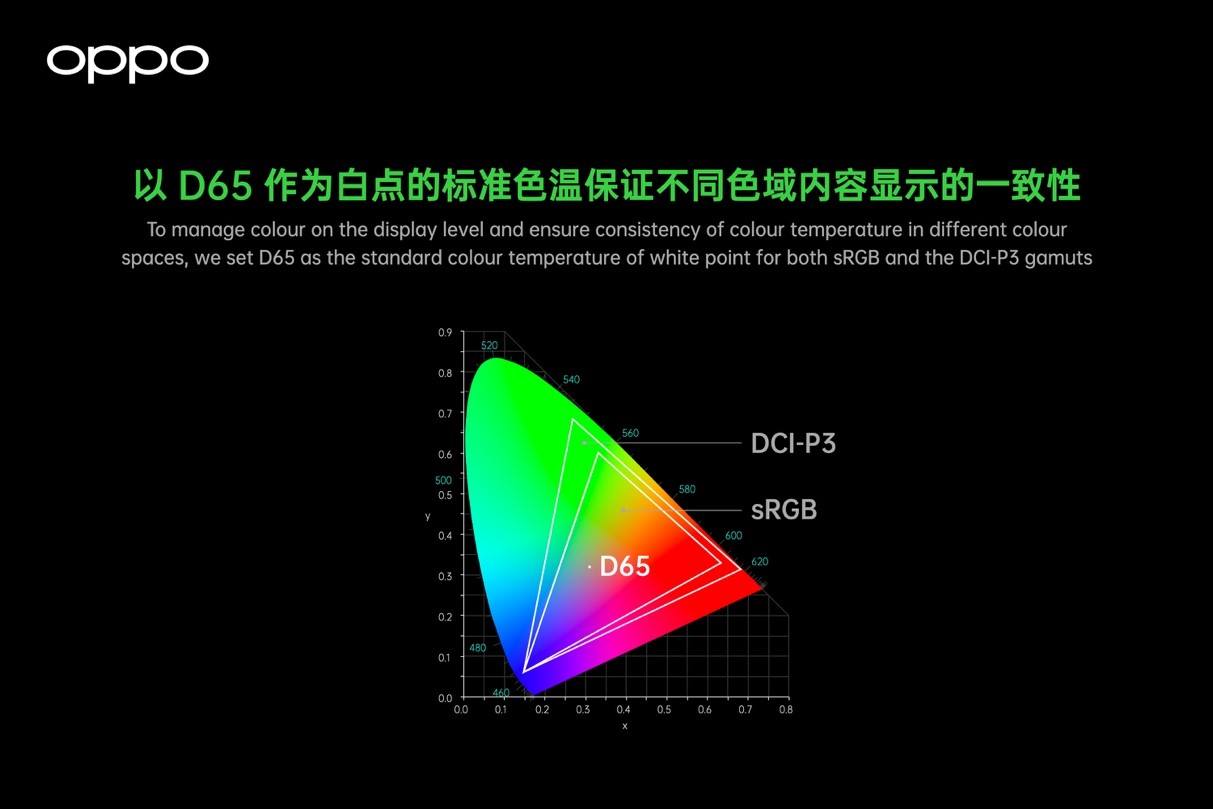SHENZHEN – OPPO announced on 18th November that the official release of the Full-path Color Management System will premiere as part of its 2021 new flagship smartphones, Find X3 series.
OPPO’s Full-path Color Management System is the very first Android color management system to support the full DCI-P3 wide gamut and 10-bit color depth from capture, storage, and display.
This delivers an outstanding viewing experience with its authentic and accurate color reproduction.
“Color inspires creativity and affects our perceptions of reality. That’s why we’ve enhanced every aspect of the color management system to add brilliant, high-quality visuals to more aspects of daily life.” said Bai, product manager at OPPO.
“Based on the stellar color performance of the Find X2 Pro, the new Full-path Color Management System has been meticulously developed to support for 10bit image capturing and HEIF format. We aim to deliver to our users a seamless and systematic color experience, which unleashes content creators’ desire to explore, capture and express themselves fully.”
DCI-P3, 10-bit HEIF Images Supported from end-to-end — The Full-path Color Management System Expands the Boundary of Visual Representation
Considering the future trends lie in wide color gamut and high color depth, OPPO’s R&D engineering team did a decent job with color reproduction by improving the underlying system and hardware.
The system is an end-to-end solution, covering all the steps from image acquisition, to computation, encoding, storage, decoding, and finally display, supporting a HEIF image with 10bit high color depth and the P3 wide color gamut.
As a management system, the full-path color management system adopted higher specification algorithm and hardware to record color when capturing. OPPO’s R&D engineering promoted algorithms in the areas such as distortion correction, multi-frame noise reduction and perceptual extreme super-resolution.
Moreover, OPPO will support image sensors featuring Digital Overlap (DOL) HDR mode. In the DOL-HDR technology, it synthesizes different exposure conditions into an image. Therefore, brilliant colors are captured even when pictures are taken against bright light.
Once we have the right hardware, calibration becomes the next important factor. OPPO’s screen calibration procedure enables a professional, digital film-grade color accuracy at around 0.4 JNCD, thereby delivering a consistently accurate display on the screen.
On the other hands, OPPO’s proprietary algorithm guarantee color gamut compatibility by adjusting the DCI-P3 with the D65 white point at the center of the color space.
Compared with the depth of 8-bits, the 10-bit color depth tones down the artificial visual features brought about by gaps in colors. The 10-bit color depth further improves color gradient to enhance the quality of visual content during creation and post-editing.
Meanwhile, with a size only around 50% of a JPEG image, the new and powerful HEIF format fully supports a wide variety of multimedia, such as static images, Exif, depth information, and dynamic videos, thus giving users more creative freedom. It is also worth mentioning that the HEIF format can be further developed to ensure compatibility with respect to ultra-high color depth.
Personalized Color Settings on Your Smartphone — Color Correction Solution for the Future of Imaging
At the recent OPPO INNO DAY 2020, OPPO Founder and CEO Tony Chen said that, “we believe in ‘Technology for Mankind, Kindness for the World’. OPPO uses technology to empower people to capture the beauty around them and to unleash their imagination of the future; thereby helping everyone get the best out of life.
This manifests in OPPO’s R&D process in color management. OPPO’s Full-path Color Management System is a fundamental function at the system level, and it is smart too. OPPO first sought to achieve a uniform standard with every screen showing colors in the same way to ensure the accuracy and fidelity; now, we go deeper to seek to meet user needs with customization.
Back to 2018, OPPO’s R&D engineering team became aware of the challenges facing smartphone users with color weakness. Considering visual health, the team went on to initiate systematic research on color correction to address the needs of a wider user for better visual experience.
Next, OPPO will go one step further by introducing a comprehensive color correction solution. By conducting a large-scale quantitative and qualitative study on those with color weaknesses, we have upgraded the color correction solution to OPPO Color Correction Solution 2.0.
Right now, OPPO is joining forces with Zhejiang University with an aim to find the optimal solution to color correction by sampling potential users with accurate quantification of color vision test.
Dr. Luo Ming, Professor of Color and Image Science at the university stated that, “Nowadays, we are considering more about individual difference for human well-being. In this case, the color correction system of the future will be highly user-centric.
Users can create their own unique and personalized display by choosing colors from the smartphone’s palette as well as testing and calibrating the system.”
For OPPO, years of innovation have led to new heights of color expression for smartphone displays. The Full-path Color Management System will be first available in OPPO’s 2021 flagship Find X3 series.
Through our authentic, accurate, and individualized color management, OPPO aims to offer users an intuitive way to experience the world and capture life at its most colorful.
For more details, please contact
OPPO Nepal PR Team
Email: [email protected]
About OPPO
OPPO is a leading global smart device brand. Since the launch of its first mobile phone – “Smiley Face” – in 2008, OPPO has been in relentless pursuit of the perfect synergy of aesthetic satisfaction and innovative technology. Today, OPPO provides a wide range of smart devices spearheaded by the Find and Reno series. Beyond devices, OPPO provides its users with the ColorOS operating system and internet services like OPPO Cloud and OPPO+. OPPO operates in more than 40 countries and regions, with 6 Research Institutes and 4 R&D Centers worldwide, as well as an International Design Center in London. More than 40,000 of OPPO’s employees are dedicated to creating a better life for customers around the world.









Comment